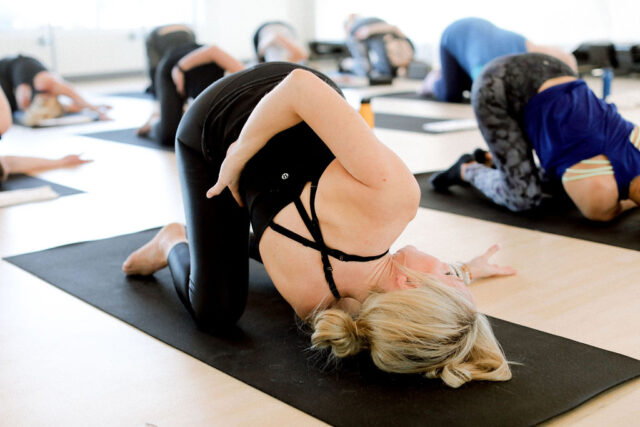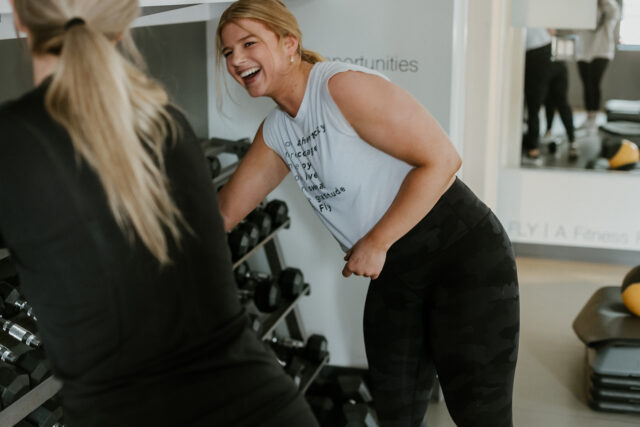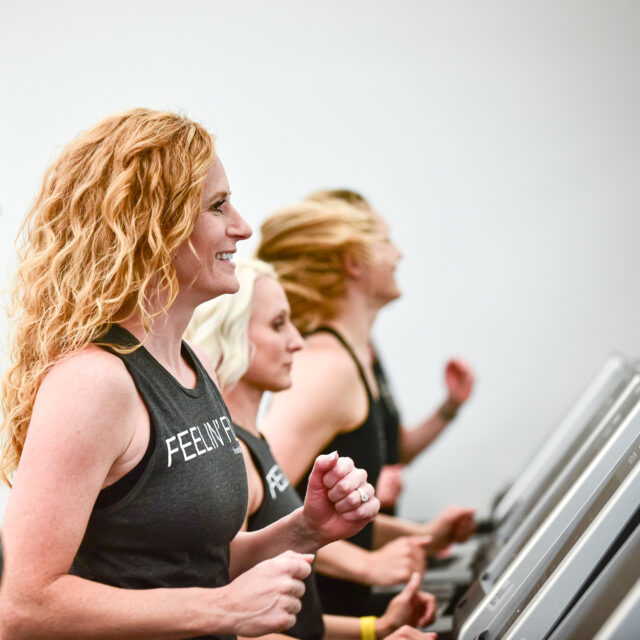4 tips for sticking to your New Years Resolutions
- By Dr. Jenni Bruning Brown
- January 5, 2017
Need a little help sticking to your New Year’s Resolutions this year? Dr. Jenni Bruning Brown, founder of Fly | A Fitness Revolution and PhD in psychology, has a a few of her best tips for making and sticking to your new years resolutions this year.
1. PICK ONE & STICK TO IT.
A new year brings us all new beginnings and the possibility to set new intentions and dream big. Often, when setting our intentions, we can set ourselves up for failure because we come up with a list so big we can’t possibly achieve them all. Alternatively, we make the list too general that it’s impossible to know how exactly to succeed. Bruning Brown suggests that instead of having a list, (I’m going to travel more, spend more time with family, work less, spend more time at the gym and cook healthy!)—just have one resolution. If you’re having trouble coming up with just one, start with picking a word that resonates with you such as “kindness,” or “optimism” and have that lead you to the goal that you are hoping to accomplish.
2. BE CONCRETE.
If Bruning Brown had to pick the top difficulty people had in making resolutions, it would be that they are too general and not specific enough. “People will say ‘I want to eat healthy’ or ‘My resolution is to be more present with others’ but I ask them if they know what that means, and they aren’t really sure. She says that even though it isn’t sexy to diagram your goal, it’s necessary if you want to be successful. So, for example, if you want to be more present with your children or significant other, then you might say that on a daily basis “I’ll spend 15 minutes with my child/significant other while my phone is off (and no other distractions such as driving or television and discussing matters of importance to my child/significant other.
3. CUT YOURSELF SLACK
Remember that it takes time to make progress. “Failure is part of progress and it often takes two steps forward and one step back,” says Dr. Bruning Brown. A study conducted in the European Journal of Social Psychology found that
it wasn’t 21 days, like many people have believed, but 66 days for habits to form. (Remember our SuperFLY challenge? YES!) So folks, it doesn’t happen overnight.
4. FEEL THE DISCOMFORT.
Retraining your mind to get comfortable with discomfort is hard. When Bruning Brown works with athletes, she encourages them to be prepared for anything and puts them in difficult situations. “You have to get comfortable in discomfort and know that failure will occur,” she says. But Bruning Brown also encourages you to realize that the feelings of discomfort are transitory and says that “the biggest changes happen when people allow uncomfortable feelings to be present and to work through them.” There are growing pains, but she says you’ll feel stronger and more confident over time if you keep working at it.
5. FIND YOUR COMMUNITY.
“Surround yourself with people who will motivate you and encourage you to improve,” says Bruning Brown. Use social media and post progress to get reinforcement. Workout with friends—it’s always easier when you are getting support from lots of different people.










